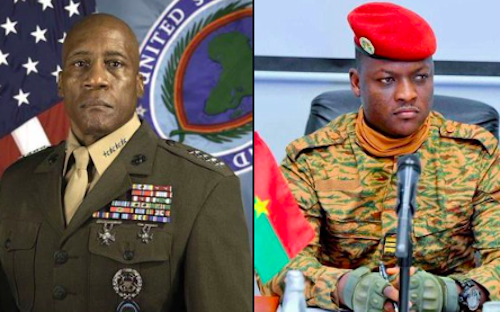Captain Ibrahim Traoré of Burkina Faso defends sovereignty amid tensions with U.S. over AFRICOM allegations raising many questions regarding Africa’s independence and the dictatorship tag.
Tensions between Burkina Faso and the United States escalated sharply in April 2025 following testimony by General Michael Langley, head of U.S. Africa Command (AFRICOM), during a Senate Armed Services Committee hearing on April 3. General Langley accused Burkina Faso’s President Ibrahim Traoré of diverting gold reserves and Chinese financial aid to bolster his military-led government instead of improving the lives of ordinary citizens. His comments sparked immediate backlash from Burkina Faso’s leadership.
VIDEO: Burkina Faso Defends Sovereignty Amid Tensions with U.S. Over AFRICOM Allegations
In a swift and firm response, Burkina Faso’s Foreign Minister, Karamoko Jean Marie Traoré, condemned the accusations as a direct assault on the country’s sovereignty. He cited ongoing reforms in critical sectors such as agriculture, health, and infrastructure as proof of the administration’s commitment to national development.
The remarks were seen by many as a reflection of growing frustration among African nations, including Niger and Mali, over what they perceive as heavy-handed Western influence through military operations like AFRICOM.
The diplomatic rift has been further inflamed by President Traoré’s own public statements, suggesting that the United States may be targeting him for regime change. This speculation gained momentum after a coup attempt on April 16 was reportedly thwarted, with accusations pointing toward external orchestration from neighboring Ivory Coast.
The situation highlights a broader shift as several African countries reassess their alliances and push back against perceived foreign intervention in domestic affairs.



